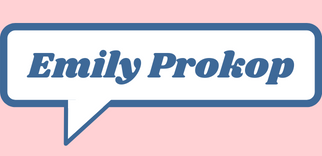As this year winds down, you're probably thinking of ways you can either improve your podcast in the new year or even start one. And as any productivity expert will tell you, setting goals is an excellent way to make sure you stay on track and keep up the momentum. And having goals put in place for your podcast is no different. Here are some quick tips to help you plan your podcasting year in 2018 and some suggestions to help you get started.
Assess what you're already accomplished
Don't wait until Dec. 31 to start planning your goals. First, let's look at what you've accomplished this year.
(If you don't have a podcast, these might give you some ideas of what to shoot for in the new year when you start your podcast.)
What worked for your show? What didn't work for your show? Which calls to action did you audience seem to respond best to? What did you find that helped your show grow or that helped you produce your show more efficiently? Which areas of social media worked best for you? What episode was your favorite? What episode was your least favorite? What episode got the most feedback from your audience? What was an obstacle you overcame while podcasting? What areas have you improved?
When you take a look at what you've already accomplished, you might notice a pattern in what worked best for you AND what your audience liked the most. If your audience is very responsive or you have a good community for your podcast, you can even use something like SurveyMonkey, Typeform, or Google Forms to get feedback from your audience.
Brainstorm and zero in on attainable goals
Start coming up with goals and ideas for your podcast. Set aside some time to list everything you can think of you'd like to see for your podcast, and think about things such as special episodes, bonus content, equipment upgrades, merch, etc.
Pick the goals most important to you and write them down. You're more likely to achieve success by writing down your goals. Take a look at a calendar and start planning to accomplish those goals.
If you can, try to choose goals you can give objectives to, like SMART goals, which stands for:
Specific - An example would be "I want to put out four bonus episodes," as opposed to "I want to add more bonus episodes."
Measurable - This means it's easy for you to keep track of your progress in achieving this goal.
Assignable - Decide whether this goal is something you will do, or a cohost, or an assistant.
Realistic - You know yourself the best, and while you may have high expectations, be able to assess your ability, the tools needed, the budget for this goal, etc.
Timely - Go back to your calendar and write a date you want to accomplish your goal by.
Keep your list of goals or your free printable, since you may want to go back to it as your goals change.
For more help on setting goals, I encourage you to check out my friend Laura McClellan's podcast, "The Productive Woman," and some of her amazing episodes about goal setting.
Some of my favorites:
Achieving Your Goals
Once you have your goals written down, it's time to break them up into smaller tasks and give those due dates. Make note of any outside help you may need and ask those people early enough.
As you accomplish the smaller steps, cross them off. Once you accomplish your goals, make time to celebrate! Don't be too quick to move on to the next goal. Take a little time to make note of what went well, what didn't go well, and what you've learned. This is will also help you when you're planning 2019 goals!
Note: Be careful of podcasting goals that involve increasing your downloads. Always remember that downloads are people and if you're merely looking at downloads as numbers, you'll miss out on engaging with your audience. A better goal than an increase in downloads would be an increase in listener engagement. The download numbers will follow, I promise.
Want to work with me? Schedule a Strategy Session!
Listen to my podcast, The Story Behind.
Visit E Podcast Productions on Facebook.
Follow me on Instagram.



